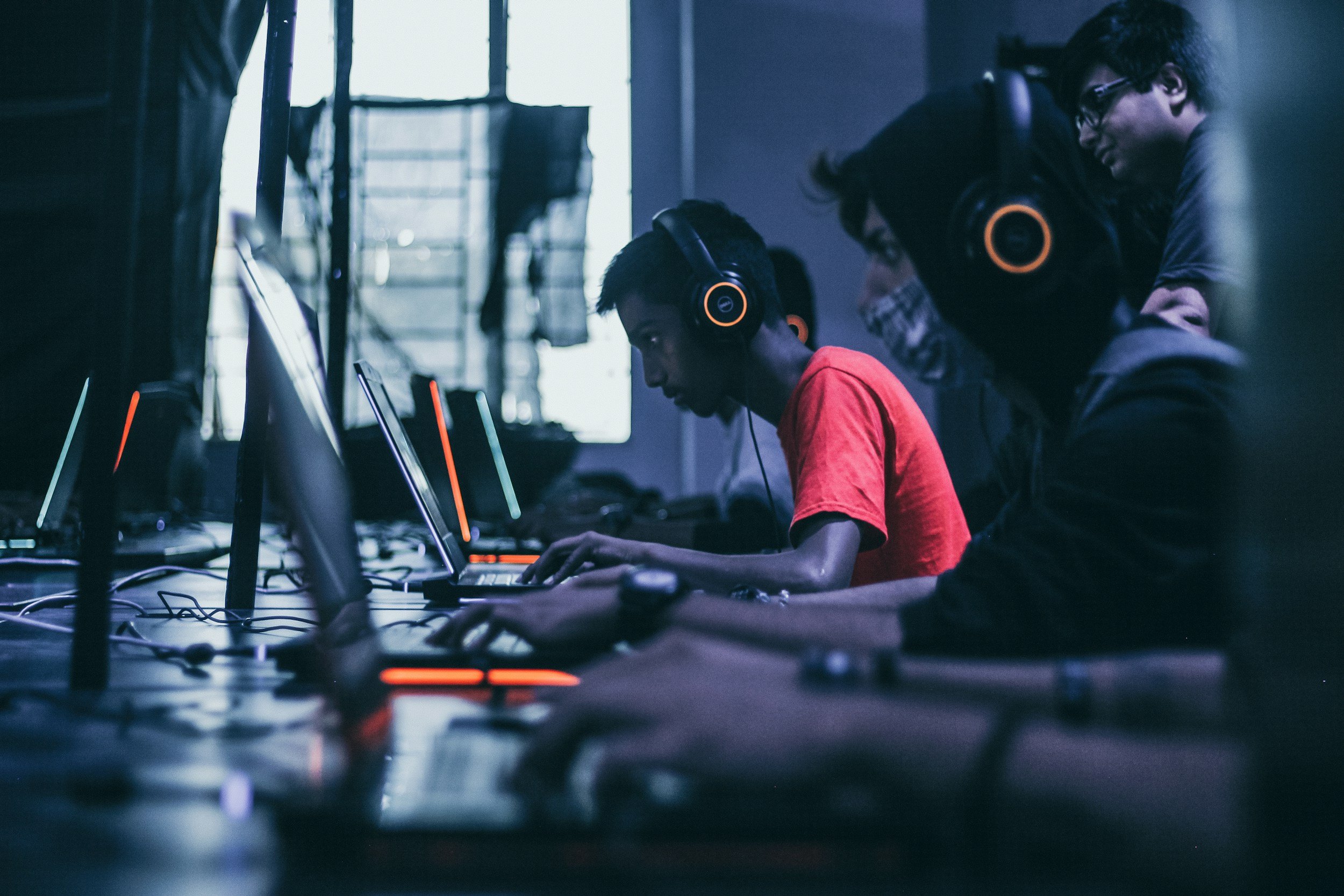The Role of Video Games in Building Resilience: Can Games Teach Perseverance and Adaptability?
In today's fast-paced, high-pressure world, resilience is an essential skill for success. The ability to bounce back from setbacks, learn from failure, and adapt to changing circumstances can make all the difference in a person’s life, whether in academic, professional, or personal contexts. Surprisingly, one platform that is increasingly recognized for its potential to nurture these traits is video games. Once dismissed as mere entertainment, video games have emerged as powerful tools for building resilience, teaching perseverance, and fostering adaptability. This article explores the role of video games in cultivating these important life skills, particularly by examining how challenging games encourage players to persist through adversity, develop problem-solving abilities, and learn from repeated failure.
The Mechanics of Challenge in Video Games
At the heart of most video games is a core gameplay loop built around challenges, obstacles, and rewards. Whether the goal is to defeat an enemy, solve a puzzle, or reach a new level, games are structured to present players with problems that require effort and skill to overcome. What makes video games distinct from many other activities is their controlled environment, where failure is not only expected but designed as a learning tool. This “safe to fail” setting encourages players to try again and again until they succeed, fostering perseverance in the process.
1. Failure as a Learning Mechanism
Video games often rely on iterative learning. A player may fail multiple times, but each failure offers new information, such as an enemy’s attack patterns or the correct sequence of moves to solve a puzzle. These insights can then be applied to the next attempt, progressively improving the player’s performance.
For example, in notoriously difficult games like Dark Souls or Celeste, players are presented with brutal challenges that almost guarantee repeated failure. However, the key to success lies in studying each mistake, adapting strategies, and improving over time. The famous "You Died" screen in Dark Souls has become symbolic of the game’s design philosophy—failure is not an endpoint, but an integral part of the learning process. Players are rewarded not just for winning but for persisting and refining their approach, which is a hallmark of resilience.
Psychologically, this repeated cycle of failure and success aligns with Carol Dweck’s concept of a "growth mindset." According to Dweck, individuals with a growth mindset believe their abilities can be developed through hard work and dedication. Challenging video games support this mindset by reinforcing the idea that effort and persistence lead to improvement, even in the face of difficulty.
2. Adaptive Problem-Solving
In addition to teaching perseverance, video games also hone players' problem-solving abilities. Many games present dynamic and evolving challenges, forcing players to adapt and think creatively. Strategy games like Starcraft or Civilization require players to constantly adjust their tactics in response to new threats or changing circumstances. These games often involve complex systems where every decision has far-reaching consequences, fostering strategic thinking and adaptability.
Puzzle games like Portal or The Witness similarly challenge players to experiment, fail, and adapt. Success in these games often hinges on seeing a problem from multiple angles and trying different approaches until a solution is found. This iterative process mirrors real-world problem-solving, where the ability to think flexibly and adapt to new information is crucial.
In this way, video games provide players with a unique cognitive playground for developing adaptability. Rather than sticking to rigid plans, players learn to be flexible, recalibrate strategies, and stay open to new ways of thinking.
Resilience Beyond the Game: Transferring Skills to Real Life
The skills developed in video games—perseverance, problem-solving, adaptability—can have meaningful applications in the real world. Researchers have begun to explore the impact of gaming on cognitive and emotional resilience, particularly in young people. Studies have found that children who played strategic and challenging video games displayed greater emotional regulation and persistence in their academic work. They suggested that the skills learned in games, such as managing frustration and adapting to changing conditions, could translate to better performance in non-game-related tasks.
1. Emotional Resilience
One of the primary emotional skills video games foster is emotional regulation. Challenging games evoke strong emotions—frustration, excitement, disappointment—but players are compelled to manage these feelings to continue progressing. This constant emotional engagement and regulation can build emotional resilience over time. In games like League of Legends or Overwatch, players often experience high-pressure situations, where remaining calm under stress is essential for success. Learning to handle these emotions within the context of the game can make players better equipped to manage stress and pressure in real life.
2. Social and Collaborative Resilience
Multiplayer games, especially those that require cooperation, also foster social resilience. In team-based games like Fortnite or Valorant, players must work together to achieve their goals, often communicating and collaborating with teammates to develop strategies. Players learn how to handle setbacks as a group, manage conflict, and develop interpersonal skills that are critical for teamwork in professional and personal settings. They also develop resilience to social setbacks—like losing a match—by maintaining a positive attitude and supporting teammates in future attempts.
Game Design and Intentional Resilience Building
Recognizing the potential for games to build resilience, some developers have started to design games specifically aimed at fostering emotional and cognitive growth. Celeste, for instance, is a platformer where the narrative is intertwined with themes of mental health and overcoming personal challenges. The game’s protagonist, Madeline, must climb a dangerous mountain while facing her inner demons, and the difficulty of the gameplay mirrors her internal struggle. Through its challenging mechanics, Celeste intentionally teaches players about perseverance, self-compassion, and the value of learning from failure.
Similarly, Hellblade: Senua’s Sacrifice weaves a narrative of resilience in the face of mental illness, offering a portrayal of psychosis while challenging players to overcome daunting obstacles. By framing resilience within a narrative context, these games provide more than entertainment—they offer players a meaningful experience that can impact their understanding of resilience both inside and outside the game.
Potential Limitations: When Games Go Too Far
While many games promote resilience, not all video games are equally effective at fostering positive outcomes. Some overly difficult or poorly designed games can frustrate players without providing the necessary feedback to improve, leading to demoralization rather than perseverance. Games that rely on luck or random chance, rather than skill-based challenges, may not offer the same cognitive benefits as games that require thoughtful problem-solving.
Furthermore, gaming addiction or excessive gaming can have negative effects on mental health, including increased stress, anxiety, and social isolation. The key to building resilience through video games lies in moderation and the selection of games that promote growth and skill development rather than escapism or mindless repetition.
Simply Put: Video Games as Resilience-Building Tools
Challenging video games offer a unique and powerful platform for building resilience. By teaching perseverance through failure, fostering adaptive problem-solving, and encouraging emotional regulation, video games can help players develop skills that are transferable to real-life challenges. As the field of game design continues to evolve, more developers are recognizing the potential of games to not only entertain but also cultivate important life skills. When approached with intention and balance, video games can be a valuable tool for fostering resilience, helping individuals of all ages learn to thrive in the face of adversity.
In a world where adaptability and perseverance are more important than ever, video games may just be the unlikely ally we need to prepare for life’s challenges.








